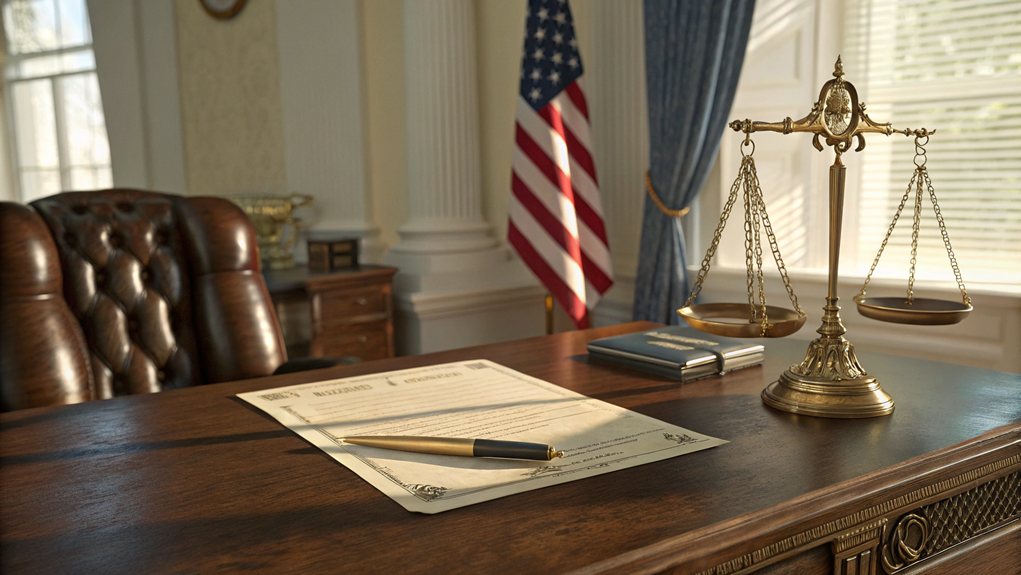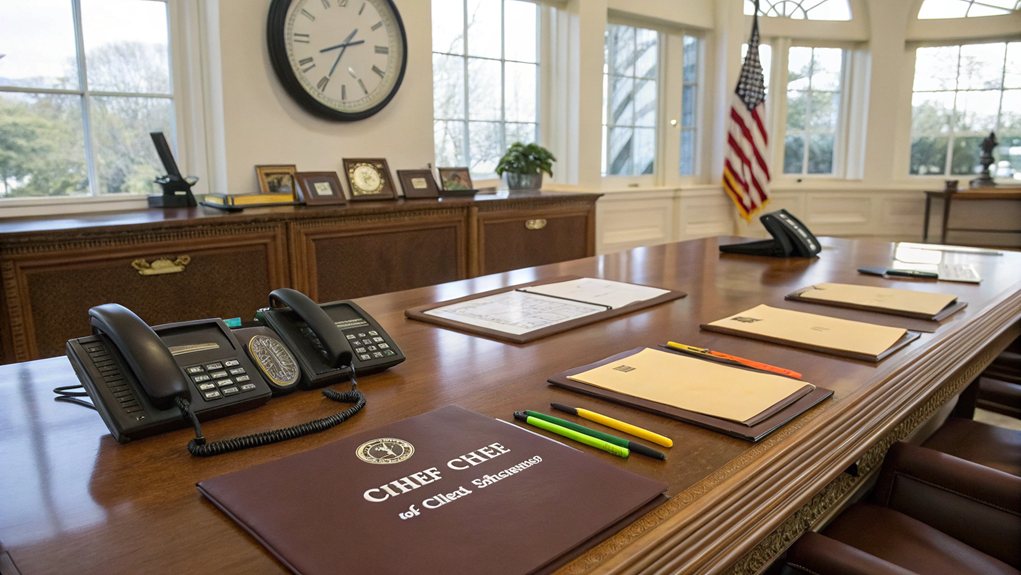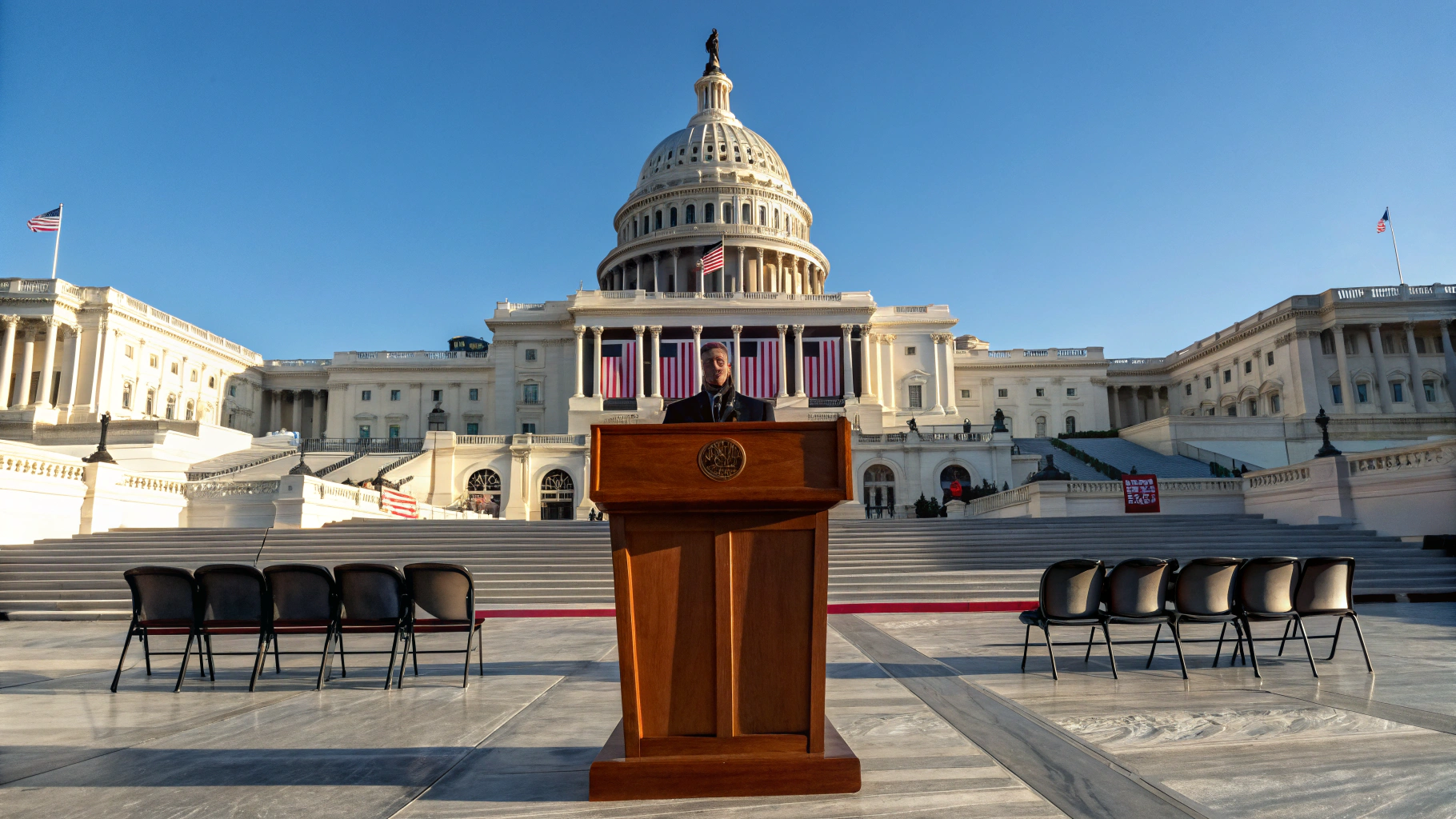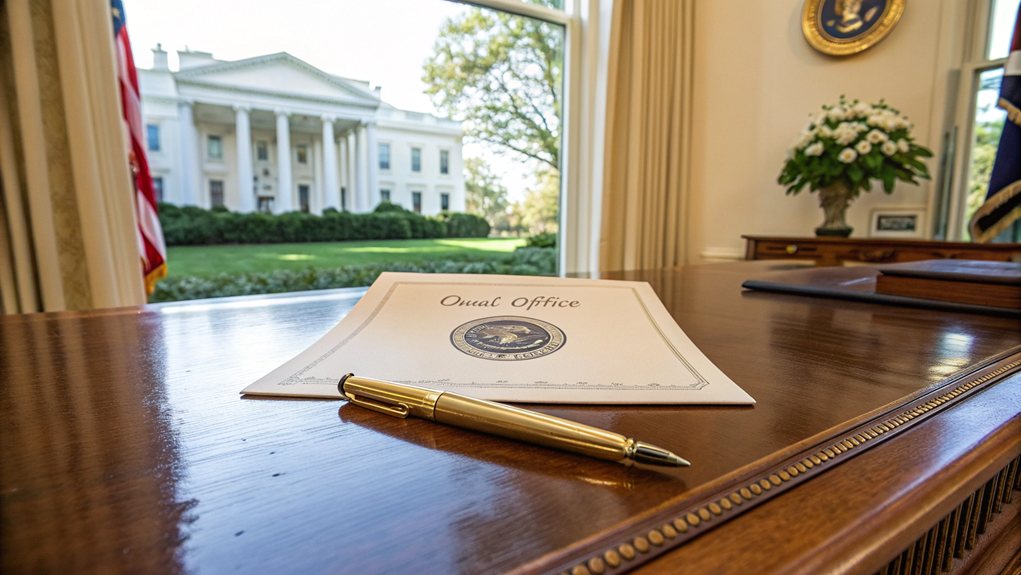Presidential pardons and commutations are like a magic wand for the president. With a wave, they can erase federal offenses, restoring rights or reducing sentences. But here's the catch: the process isn't simple. Applications get vetted by the Office of the Pardon Attorney, looking at a person's behavior post-crime. Controversy? Absolutely. Nixon's pardon sparked uproar, and Clinton's choice of Marc Rich raised eyebrows. It leaves people scratching their heads. Want to unravel the tangled mess of clemency? There's more to explore.
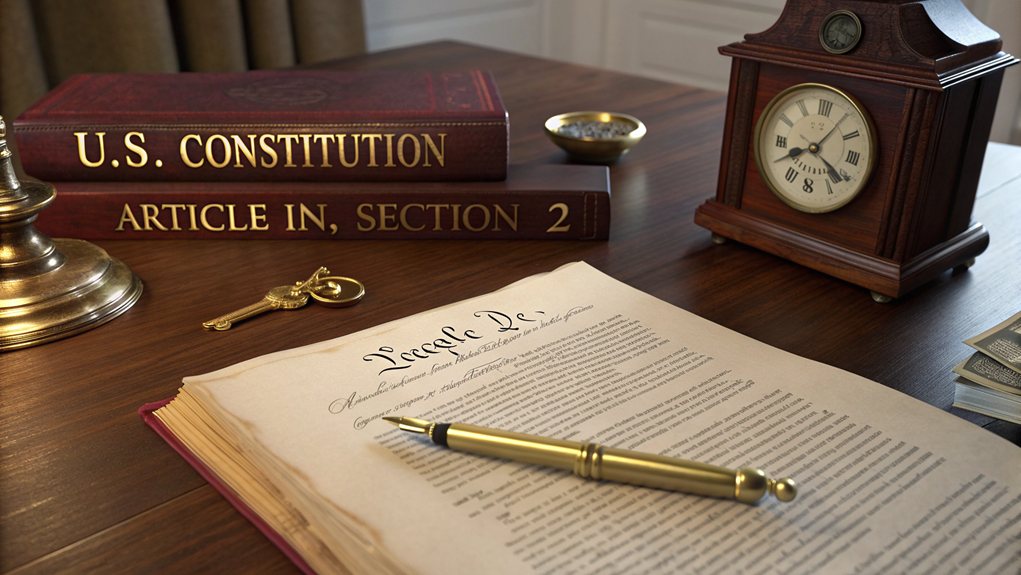
Understanding presidential pardons can feel like trying to navigate a maze blindfolded. The U.S. Constitution, in Article II, Section 2, gives the President the power to pardon offenses against the United States. Sounds straightforward, right? Not quite. This power covers nearly all federal crimes—except for those pesky impeachment cases. So, if you think you can get off scot-free after being impeached, think again.
The pardon process is a bit of a bureaucratic dance. Typically, requests land on the desk of the Office of the Pardon Attorney. They sift through applications, considering factors like how the person has behaved post-conviction, the seriousness of the crime, and if the individual has shown any remorse. After all, a little bit of accountability goes a long way. The historical evolution of pardons has shown that they are not just legal tools but also reflect societal changes and political climates.
The pardon process involves careful scrutiny, weighing behavior, crime severity, and remorse—because accountability matters.
If the office gives the thumbs-up, they recommend it to the President, who ultimately holds the golden ticket. However, the President can always skip the formality and just grant a pardon. Who needs a recommendation when you're the boss? Pardon power is broad but not unlimited, as it excludes cases of impeachment and state crimes. Interestingly, pardons can only eliminate some consequences of conviction while the conviction remains on the criminal record, highlighting the limitations of presidential pardons.
Pardons wipe the slate clean, restoring civil liberties like voting rights or running for office. But let's not forget the other types of clemency: amnesty, which covers groups; commutations, which shorten sentences; and reprieves, which hit the pause button on punishment. Each one has its own quirks and limitations.
The history of pardons is rich with drama. Some presidents toss out pardons like they're candy at a parade. Franklin D. Roosevelt was the champ of pardons.
Then there's Gerald Ford, who pardoned Nixon, and Bill Clinton's infamous Marc Rich pardon. Controversy? Oh, it follows pardons like a shadow. A move perceived as politically motivated can make headlines—and not the good kind.
In the end, pardons are a power play. They can shape public perception, influence elections, and sometimes, well, they just leave people scratching their heads in disbelief.
Frequently Asked Questions
Can a President Pardon Themselves?
Can a president really pardon themselves? Well, that's a hot topic.
Some say it's possible since the Constitution doesn't say "no." Others argue it's just plain wrong—no one is above the law, right?
The Justice Department thinks self-pardons would be a no-go. Nobody's tried it yet, but imagine the chaos if it happened. Talk about setting a wild precedent!
How Often Do Presidents Grant Pardons?
Presidents hand out pardons more often than you might think. Since the days of George Washington, over 45,000 clemency acts have been granted.
Joe Biden is on fire, racking up more than 8,000 pardons—most in his last year. Some presidents, like Garfield, gave out zero.
It's a mixed bag: some go big, while others just hit snooze. When it comes to pardons, it's all about timing, folks.
Are Pardons Permanent or Temporary?
Pardons? Yeah, they're pretty much permanent. Once the President gives the thumbs up, the penalties vanish—poof!
But don't get too excited; the conviction still lingers like a bad smell. Acceptance means you're admitting guilt, which is a whole other can of worms.
And guess what? Pardons don't protect you from state charges or civil lawsuits. So, while they sound great, they come with plenty of fine print.
Can Pardons Be Revoked?
Can pardons be revoked? The short answer is usually no.
Once a pardon is delivered and accepted, it's final. Sure, history shows a couple of rare exceptions, like when George W. Bush took back one of his own pardons.
But, legally speaking, the Constitution doesn't allow for revocation. So, unless you're pulling a fast one—like fraud—you're pretty much stuck with your pardon.
Talk about a one-way street!
Do Pardons Erase Criminal Records?
Pardons don't magically erase criminal records. Nope, they just take away some penalties.
Think of it this way: a pardon is like a "get out of jail free" card, but the stain of conviction still hangs around. It restores some rights—like voting and owning a gun—but your record? Still there, still public.
